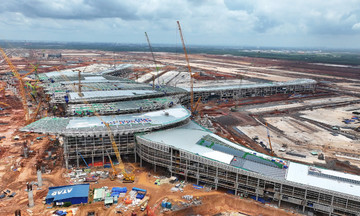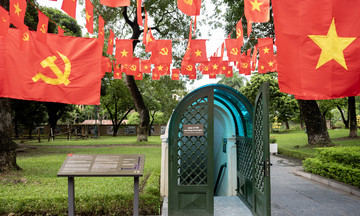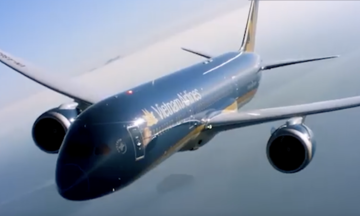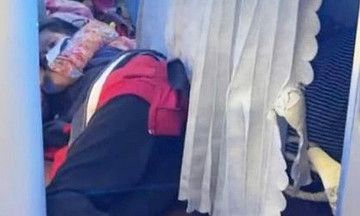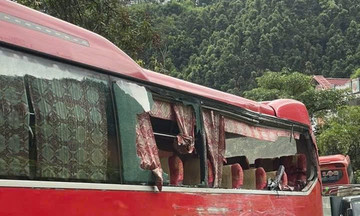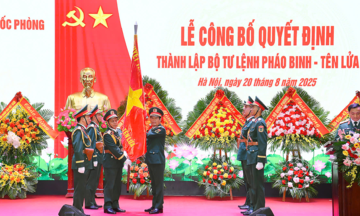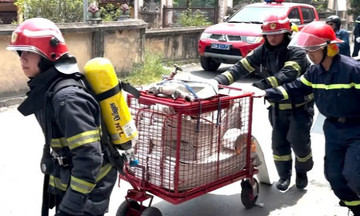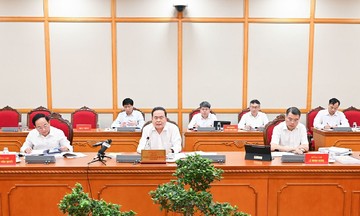These electric bus routes are among 35 routes awarded to Phuong Trang Passenger Car Joint Stock Company (Futabuslines). In total, the company will operate 557 buses, including 443 electric and 114 diesel buses, all manufactured in 2025 at the Kim Long Motor factory (Hue) and meeting international standards.
According to Phan Van Hai, Futabuslines' deputy general director, the buses have a capacity of 30-60 seats and are equipped with free wifi, an automated announcement system, surveillance cameras, and cashless payment devices. The city subsidizes all routes under the current policy.
Certain groups are eligible for free fares, including children under 1.3 m tall, people with disabilities, wounded soldiers, and senior citizens with valid identification. A comprehensive charging station system has also been established to ensure continuous operation.
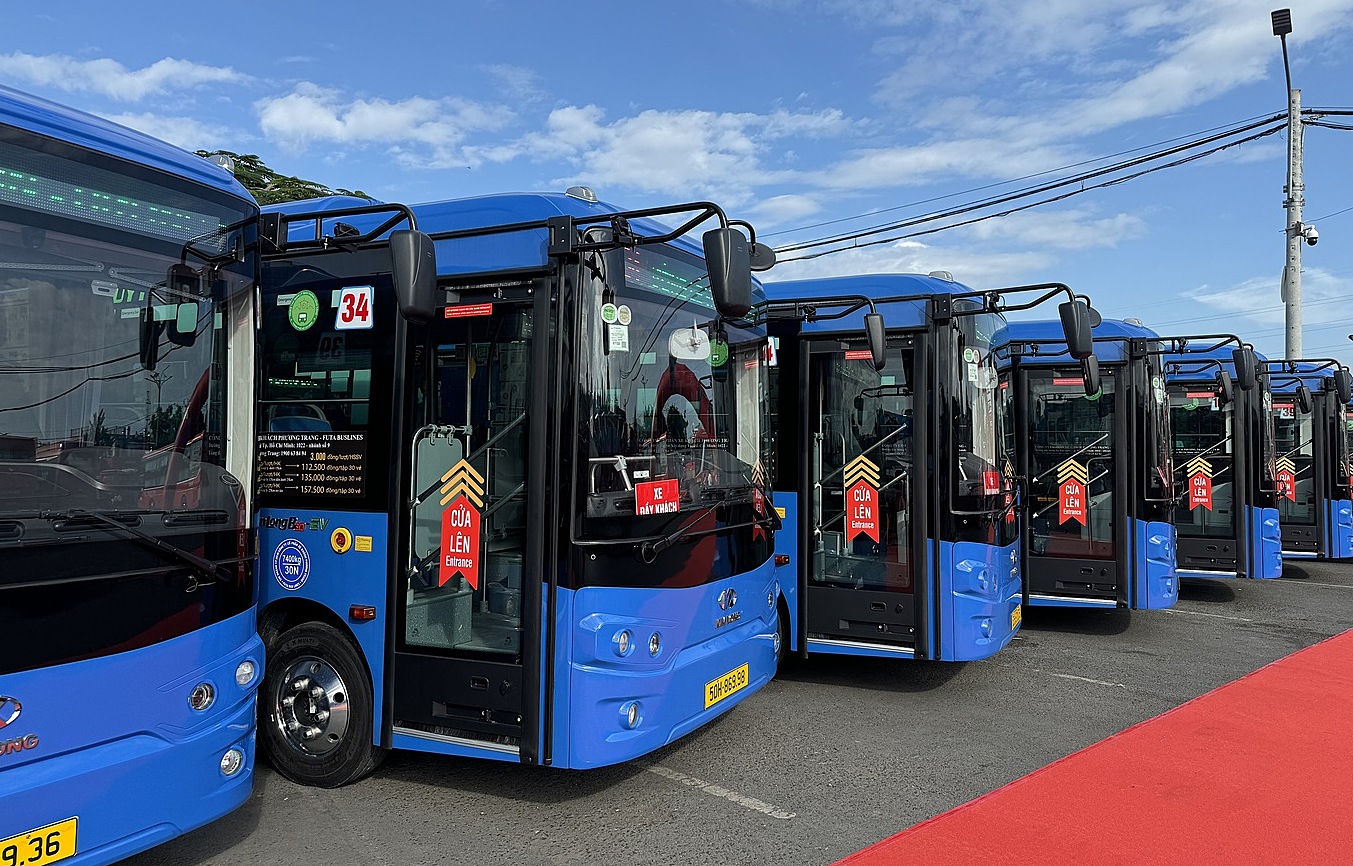 |
Electric buses on one of the 27 routes launched in Ho Chi Minh City on 1/8. Photo: Ha Giang |
Electric buses on one of the 27 routes launched in Ho Chi Minh City on 1/8. Photo: Ha Giang
Nguyen Vinh Toan, deputy director of Ho Chi Minh City's Department of Construction, said the addition of 27 electric bus routes is a step towards improving public transport quality and reducing pollution. After merging with Binh Duong and Ba Ria - Vung Tau, Ho Chi Minh City now has 164 bus routes with approximately 2,342 vehicles. Previously, the city had launched 21 electric bus routes with 170 vehicles.
With these additions, Ho Chi Minh City now has a total of 613 electric buses. Including approximately 500 compressed natural gas (CNG) buses, environmentally friendly vehicles make up nearly 48% of the operating bus fleet. "This is a positive outcome in the transition to green energy vehicles," Toan said.
The city is implementing a two-phase Vehicle Emissions Control Project, which includes defining a roadmap and policies to support the transition of buses to clean energy. The goal is for all buses operating in Ho Chi Minh City to use environmentally friendly energy by 2030.
In the second phase, consultants are developing an expanded plan following the merger. The focus is on creating incentives for individuals and businesses to switch from gasoline to electric vehicles, including buying back old vehicles and supporting the exchange for new clean energy vehicles. The scope will expand from private cars to taxis, ride-hailing services, and other passenger transport.
Giang Anh



